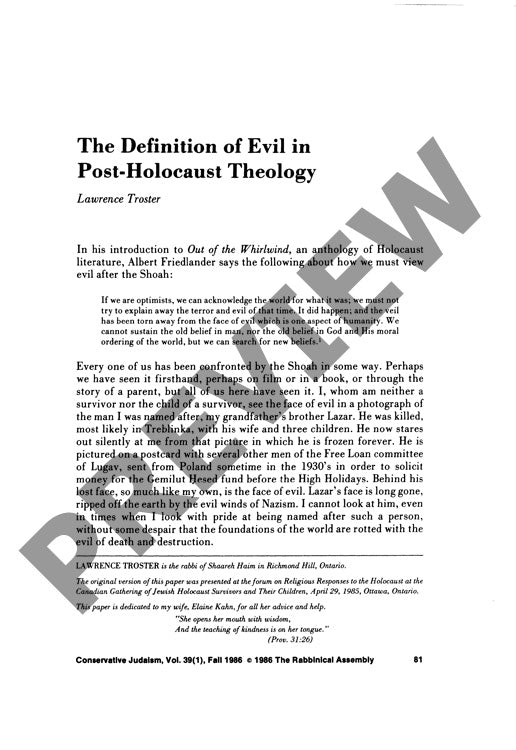The Definition of Evil in Post Holocaust
Couldn't load pickup availability
The Holocaust fundamentally transformed how Jewish theologians conceptualize evil, forcing a dramatic shift from abstract philosophical frameworks toward mystical understandings that acknowledge evil as a tangible force. Through comparative theological analysis of six prominent Jewish thinkers, a clear divide emerges between pre- and post-Holocaust approaches. Leo Baeck, Mordecai Kaplan, and Martin Buber maintained traditional philosophical views of evil as non-existent or merely the absence of good, even after experiencing the Shoah firsthand. However, later theologians Richard Rubenstein, Emil Fackenheim, and Abraham Joshua Heschel developed radically different perspectives that drew heavily from Kabbalistic traditions, particularly the concept of sitra ahra (the "other side"). Their work represents a decisive break from classical philosophical negation theory toward mystical frameworks that recognize evil as a substantive cosmic reality. This theological evolution, situated between classical Jewish philosophical and mystical traditions, reflects a broader existential challenge: how to maintain religious faith while confronting unprecedented manifestations of human evil. The Holocaust's impact continues to reverberate through Jewish theological discourse, rendering traditional philosophical abstractions inadequate for addressing the reality of radical evil in human history.

More Information
-
Physical Description
-
Publication Information
Published 1986
ISBN
-
Publication Credits
Lawrence Troster

